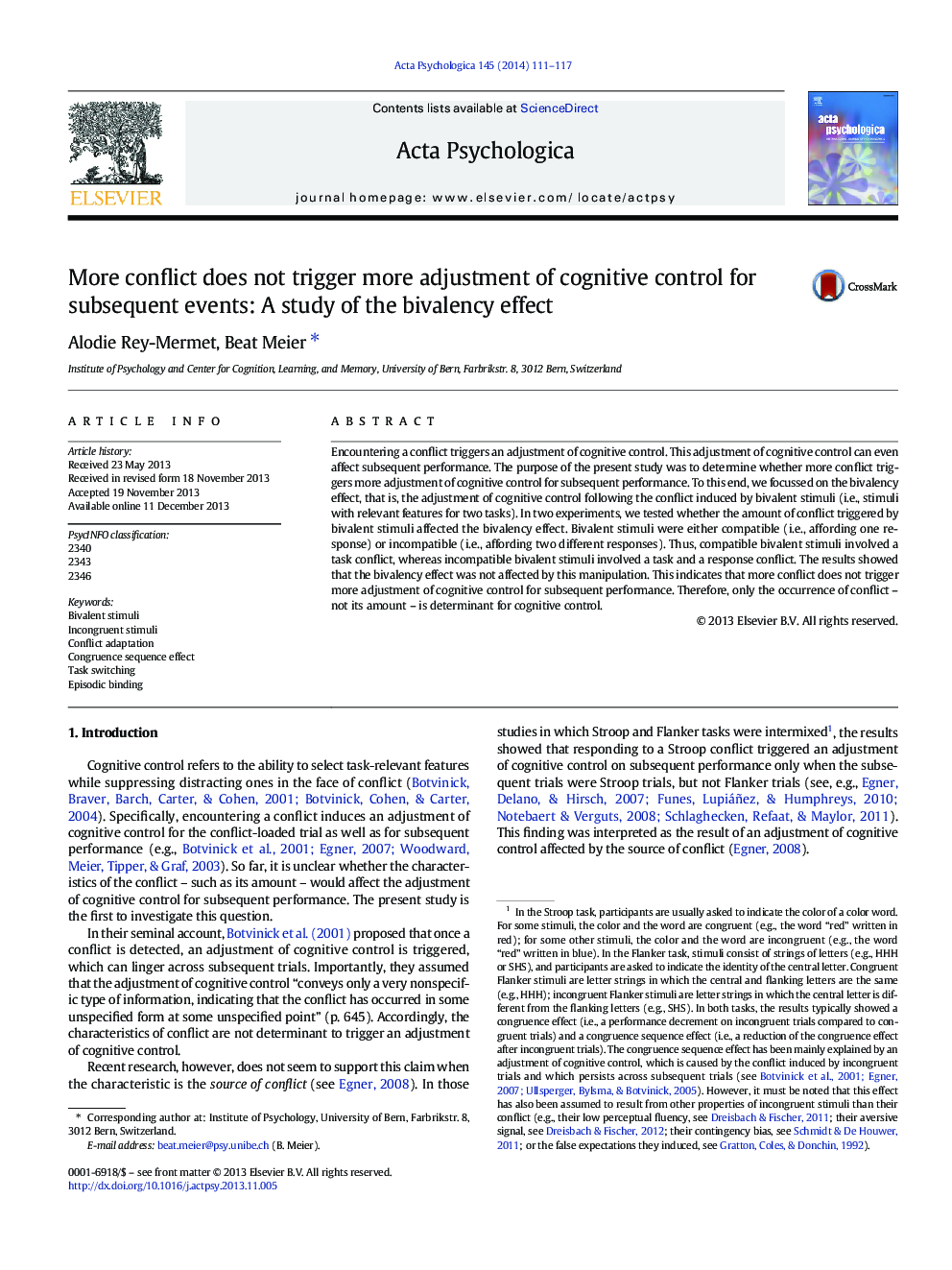| Article ID | Journal | Published Year | Pages | File Type |
|---|---|---|---|---|
| 919851 | Acta Psychologica | 2014 | 7 Pages |
•Encountering a conflict triggers an adjustment of cognitive control.•The adjustment of cognitive control can affect subsequent performance.•We varied the amount of conflict (compatible versus incompatible bivalent stimuli).•The results showed an effect on immediate but not subsequent performance.•The amount of conflict does not necessarily affect subsequent adjustment of control.
Encountering a conflict triggers an adjustment of cognitive control. This adjustment of cognitive control can even affect subsequent performance. The purpose of the present study was to determine whether more conflict triggers more adjustment of cognitive control for subsequent performance. To this end, we focussed on the bivalency effect, that is, the adjustment of cognitive control following the conflict induced by bivalent stimuli (i.e., stimuli with relevant features for two tasks). In two experiments, we tested whether the amount of conflict triggered by bivalent stimuli affected the bivalency effect. Bivalent stimuli were either compatible (i.e., affording one response) or incompatible (i.e., affording two different responses). Thus, compatible bivalent stimuli involved a task conflict, whereas incompatible bivalent stimuli involved a task and a response conflict. The results showed that the bivalency effect was not affected by this manipulation. This indicates that more conflict does not trigger more adjustment of cognitive control for subsequent performance. Therefore, only the occurrence of conflict – not its amount – is determinant for cognitive control.
